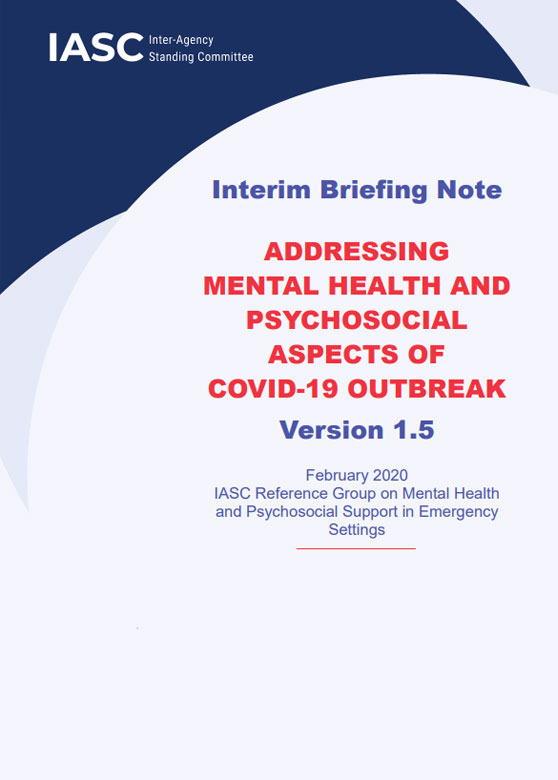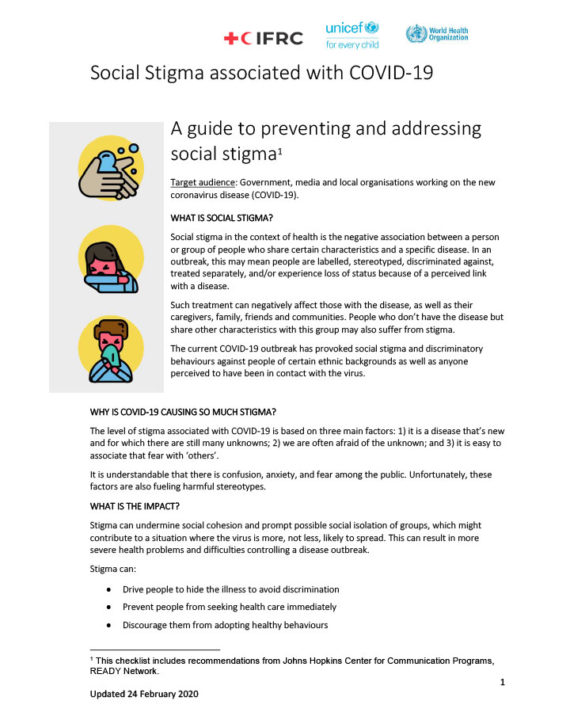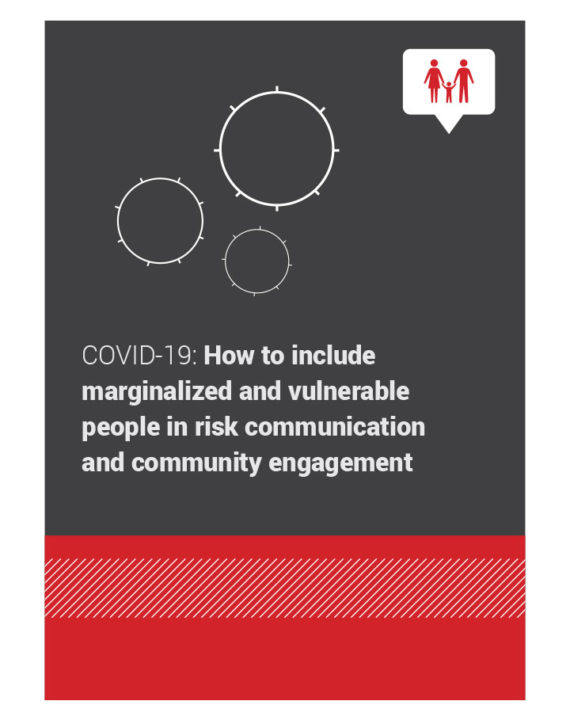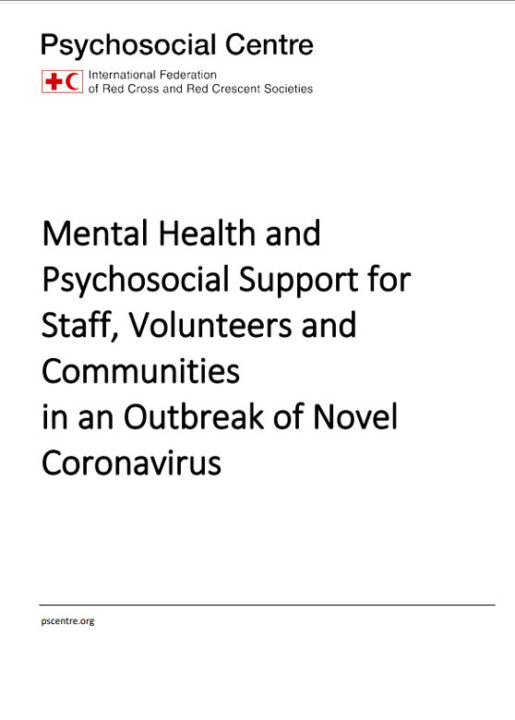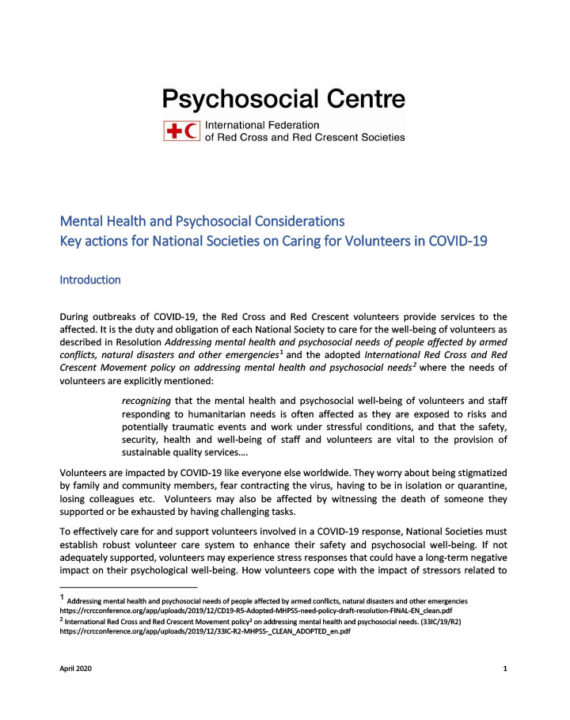This briefing note summarises key mental health and psychosocial support (MHPSS) considerations in relation to the 2019 novel coronavirus (COVID-19) outbreak. It includes topics such as MHPSS responses to COVID-19, overarching principles for an MHPSS response to COVID-19 and globally recommended activities. It additionally includes information on interventions for helping older adults, children, adults in isolation as well as people working in the COVID-19 response to cope with COVID-related stress. The brief was last updated February 2020.
guides_tools
IASC Briefing Note Version 1.5: Addressing Mental Health and Psychosocial Aspects of COVID-19 Outbreak
Information
English
2020
pdf
Translations
No translations available


